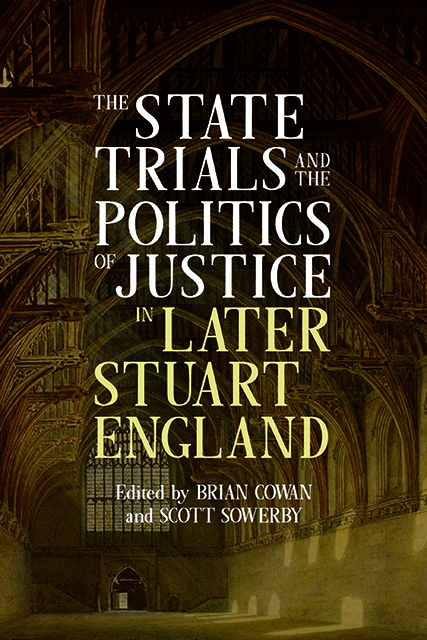4 - The Trial and Execution of Oliver Plunket
Published online by Cambridge University Press: 14 January 2023
Summary
On 8 June 1681 Oliver Plunket, Catholic archbishop of Armagh, was tried in the Court of King’s Bench at Westminster Hall for high treason, alleged to have conspired to raise Ireland in a rebellion to restore Catholicism and kill Protestants in concert with a French invasion. Plunket’s 1681 trial in London occurred after a first attempted trial in Dundalk in 1680 had failed when the witnesses against him had not shown up. On that occasion, he had thirty-two witnesses of his own on hand to rebut any accusations, as well as documents showing his accusers’ characters so suspect that even a Protestant Irish jury would have known the charges against him to be false and malicious. The English parliament, under the direction of the earl of Shaftesbury, then ordered Plunket brought to London. At his 1681 trial in London none of his witnesses were able to be present when he was given only five weeks’ notice to send for them and for them to arrive from Armagh. Plunket, moreover, was denied access to documents to prove the prosecution witnesses’ criminal histories and personal hostility.
Having been tried and convicted on 8 June, and condemned on 15 June, on 1 July 1681 Plunket was drawn the two-and-a-half miles from the prison at Newgate to Tyburn tied on a wooden hurdle, witnessed ‘by a multitude of spectators all the way’. At Tyburn, Plunket delivered a lengthy last speech again protesting his innocence. He was then executed by being hanged and quartered, perhaps dying quickly by strangulation, as one text suggested. But he may have suffered the full punishment ordered by the court, which Whig propaganda on Plunket’s condemnation sometimes recorded, of being ‘Hang’d by the Neck, and then cut down alive his Privy Members to be cut off, his Bowels to be taken out and burnt before his face’, before death caused by having the heart cut out, followed by beheading and quartering. It had been common in sixteenth- and seventeenth-century England for crowds to ensure that this full sentence was carried out against Catholic priests. Knowing the sentence against him, on the day before his execution, Plunket composed himself by remembering that Jesus had suffered ‘the most paineful death of the cross for others’ sinns, which death of the cross compared to that of Tyburne, as I heere ye description of it is but a fleabyting’.
- Type
- Chapter
- Information
- Publisher: Boydell & BrewerPrint publication year: 2021

